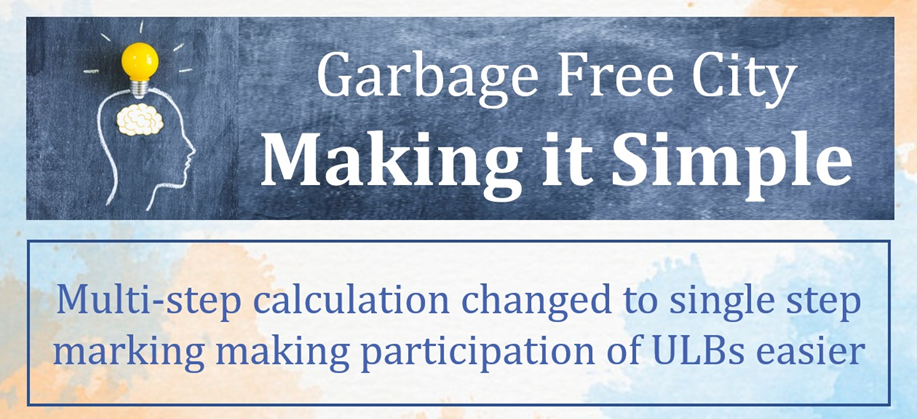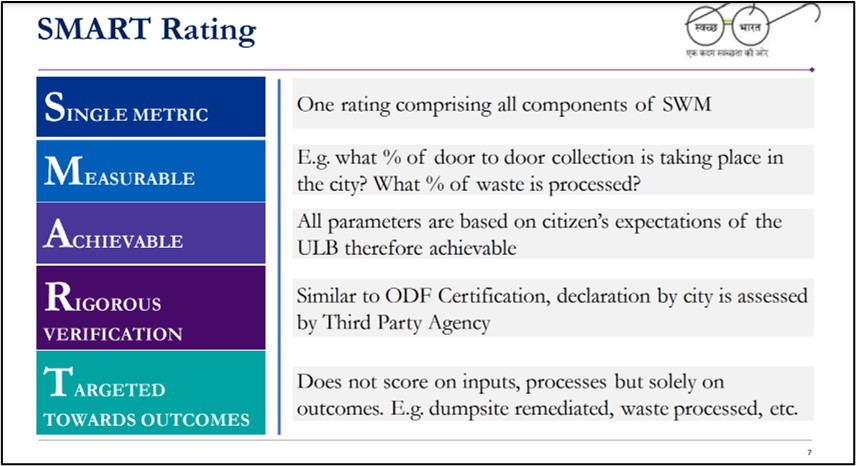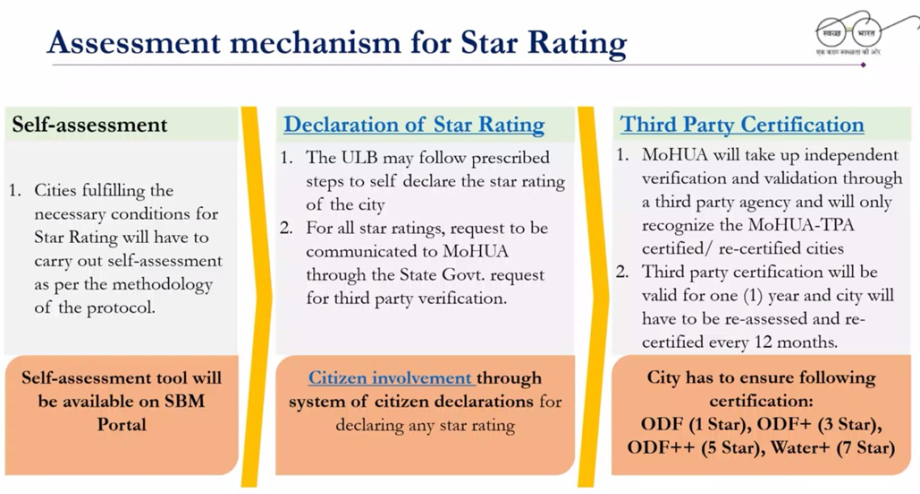Description

Copyright infringement not intended
Context: On the event of International Zero Waste Day 2023 in New Delhi, the Hon'ble Minister for Housing and Urban Affairs stated that 1000 cities were aimed at becoming 3-Star garbage free by October 2024.
Highlights of the Minister’s Speech
- "Swachhotsav 2023," a programme started by the Union Ministry of Housing and Urban Affairs (MoHUA), aims to make 1000 cities 3-Star garbage free by October 2024.
- The Minister emphasised the development of the GFC-Star grading system, which was introduced in January 2018 to promote competition and a sense of purpose among Urban local authorities.
- The Minister stated that all 4,715 Urban Local Bodies (ULBs) in urban India are now Open Defecation Free (ODF), 3,547 ULBs are ODF+ with working and clean community and public restrooms, and 1,191 ULBs are ODF++ with full faecal sludge management.
- He highlighted that “from 17% in 2014 to 75% in 2023, waste processing in India increased by more than four times. This has been made possible thanks to source segregation of waste being practised by citizens in nearly 90% of wards across all ULBs in the nation, as well as 100% door-to-door waste collection in 97% of the wards.”
- The Minister stated that the Prime Minister started the Swachh Bharat Mission-Urban 2.0 with the overall goal of establishing "Garbage Free Cities" (GFC), putting India on a new trajectory of development towards an ecosystem of comprehensive sanitation and waste management.
.jpeg)
GFC-Star grading system
About
- The MoHUA introduced the Star Rating Protocol in 2018 to institutionalise a method for communities to become garbage-free and to inspire them to reach better standards of sustainable sanitation.
Criteria
- It is based on 12 criteria that follow the SMART framework; Single metric, Measurable, Achievable, Rigorous verification method, and Targeted towards outcomes.
- It is a comprehensive framework that rates towns on their performance in 23 distinct areas of solid waste management (SWM) and assigns grades based on total scores.

Procedure
- Self-evaluation and self-verification are used to back the star rating to reach a particular star rating. Additionally, it guarantees the participation of community organisations in a transparent self-declaration method.
- The self-declaration is also confirmed by a MoHUA-appointed independent third-party organisation.

Significance
- The performance of cities participating in the Star Rating Process is vital as it heavily influences their final Swachh Survekshan evaluation. The government conducts Swachh Survekshan, a yearly study of metropolitan cleanliness.
- Through a list of criteria outlined in the framework, it also guarantees a set of minimum standards of cleanliness.
- The rating is carried out at the municipal level, making the procedure simpler to execute and assisting the towns in gradually enhancing their general cleanliness.
- The rating methodology is an instrument that focuses on results and aids MoHUA and other stakeholders in assessing cities using this single rating.

Keywords
ODF status:
- A city or ward is designated as an open defecation-free zone (ODF) if, at any given time of the day, no one is observed urinating in public.
ODF+ status:
- If "at any point of the day, not a single person is seen defecating and/or urinating in the open, and all communal and public toilets are functioning and well-maintained."
ODF++ status:
- If "Faecal sludge/septage and sewage must be safely handled and treated; no untreated faecal.
Must Read Articles:
International Day of Zero Waste:
https://www.iasgyan.in/daily-current-affairs/international-day-of-zero-waste#:~:text=The%20first%20International%20Day%20of,UNEP
Garbage Free Cities: https://www.iasgyan.in/daily-current-affairs/garbage-free-cities-swachh-bharat-mission
Solid waste management: https://www.iasgyan.in/daily-current-affairs/solid-waste-management
Star Rating Protocol of Garbage Free Cities: https://www.iasgyan.in/daily-current-affairs/star-rating-protocol-of-garbage-free-cities-toolkit-2022
Swachh Bharat Mission: https://www.iasgyan.in/daily-current-affairs/swachh-bharat-mission-6
|
PRACTICE QUESTION
Q. The amount of municipal solid waste (MSW) produced daily in India is about 150,000 tonnes. However, only 83% of garbage is collected and little less than 30% of that gets recycled. Urban local bodies face several social and environmental difficulties as a result of the garbage situation. Discuss innovative methods for solid waste management that can help in dealing with increasing waste problems in India.
|

https://www.pib.gov.in/PressReleasePage.aspx?PRID=1912107

















